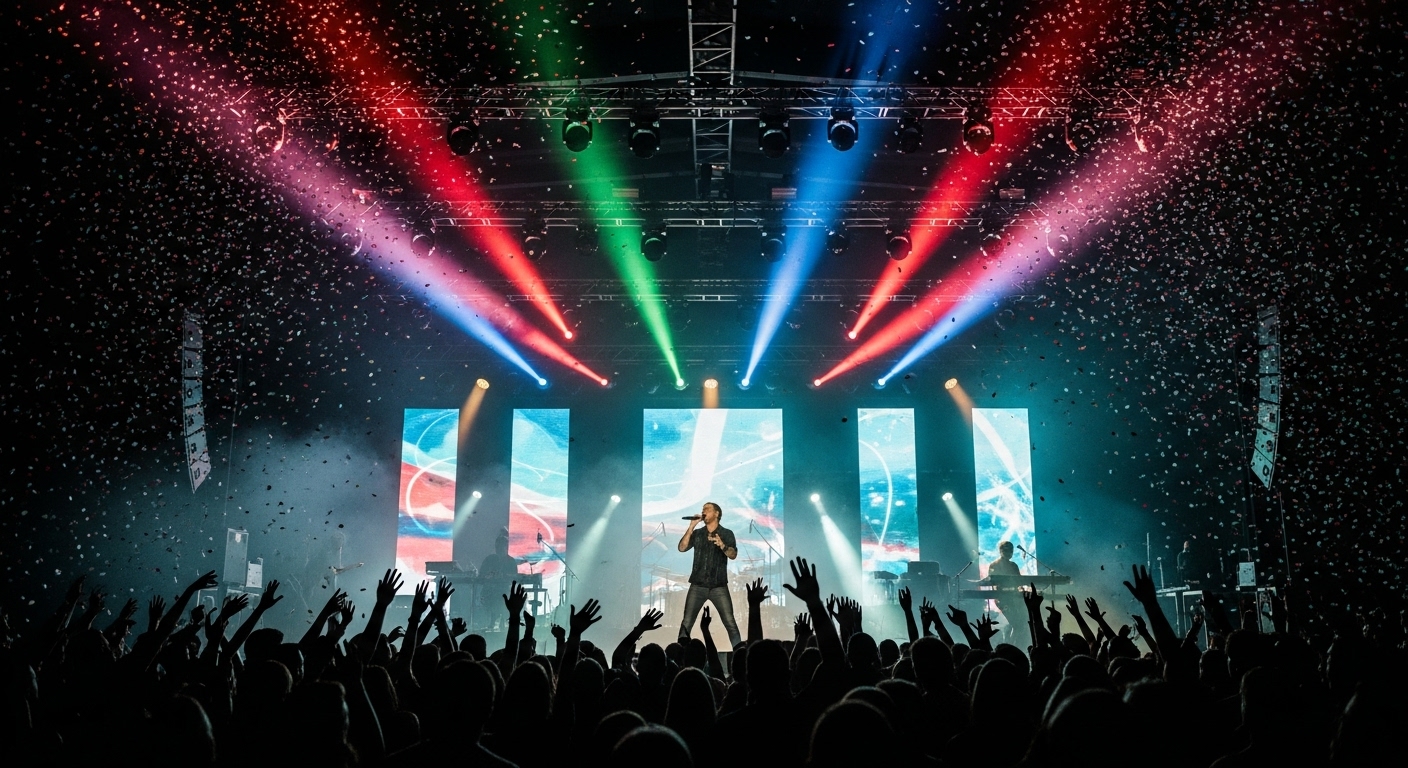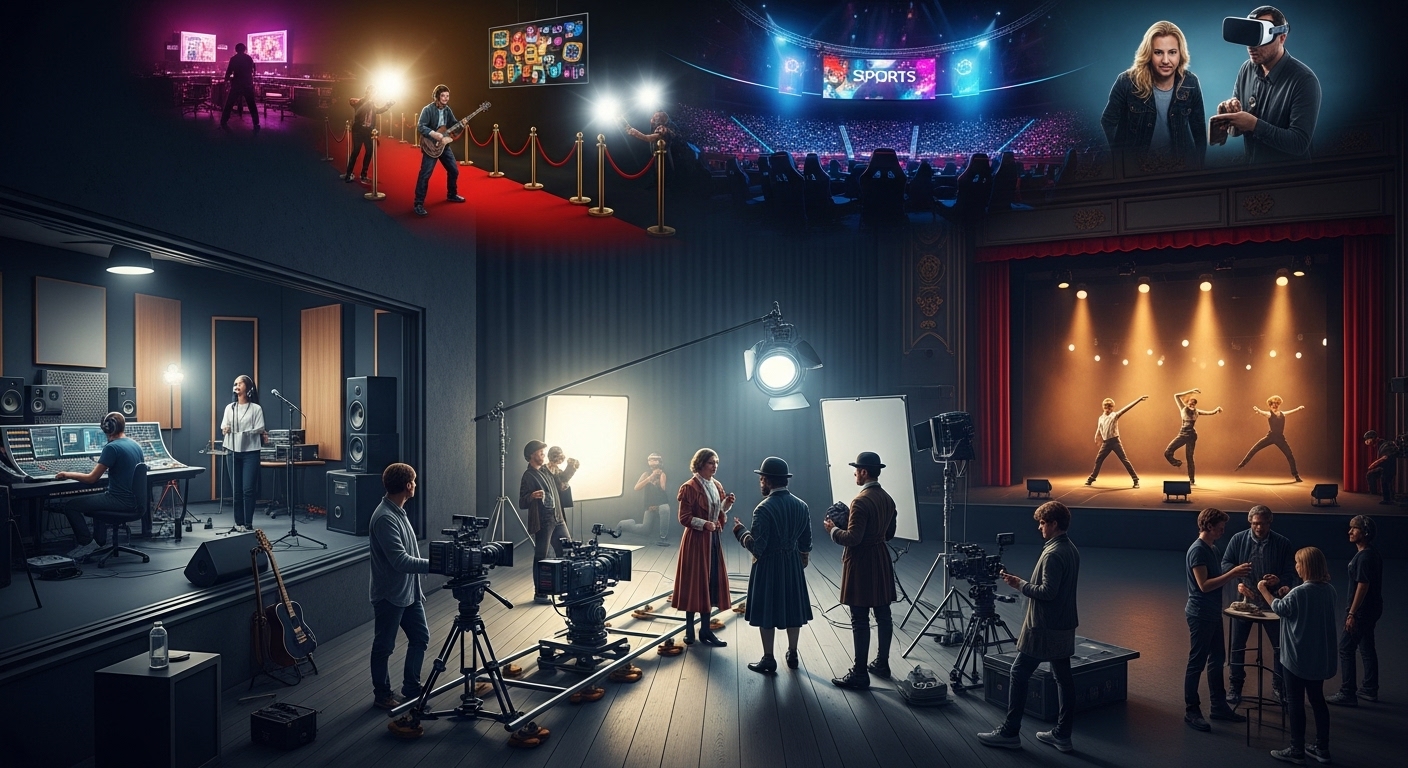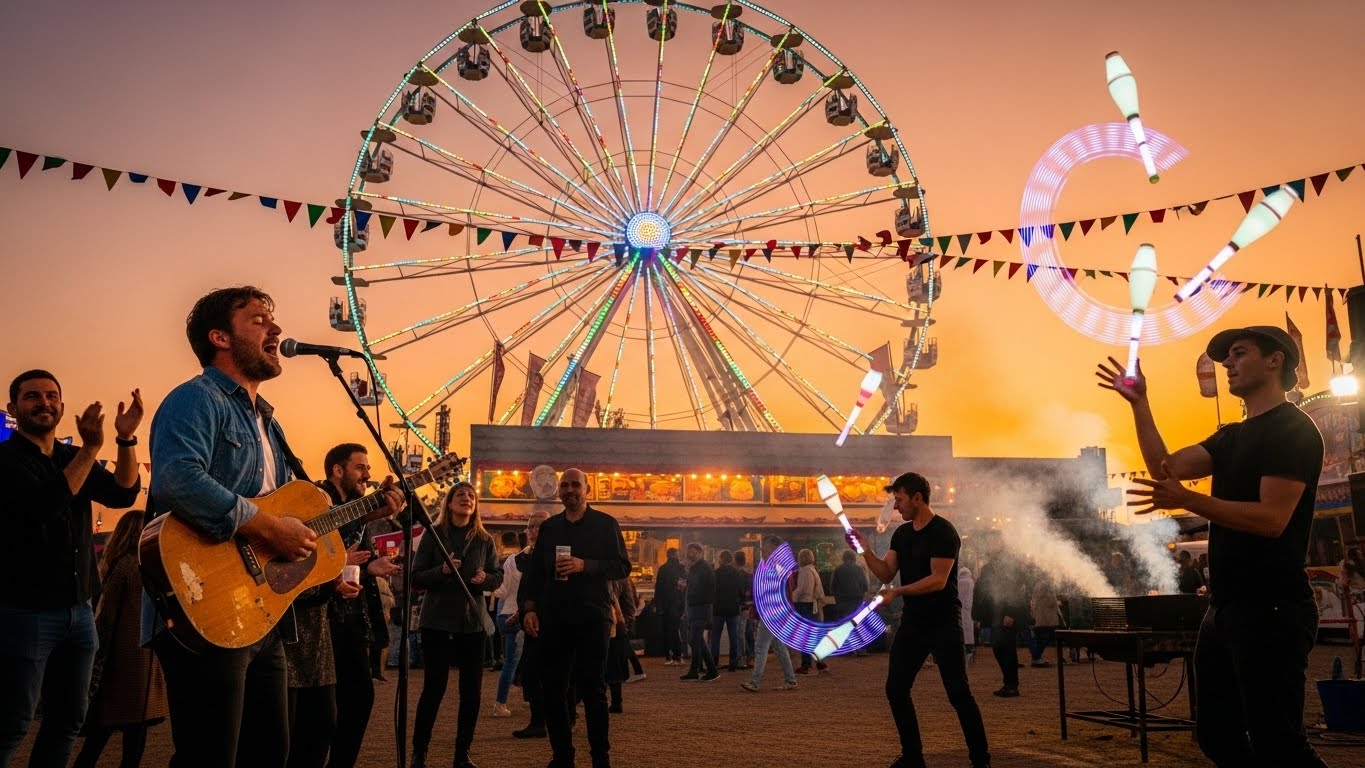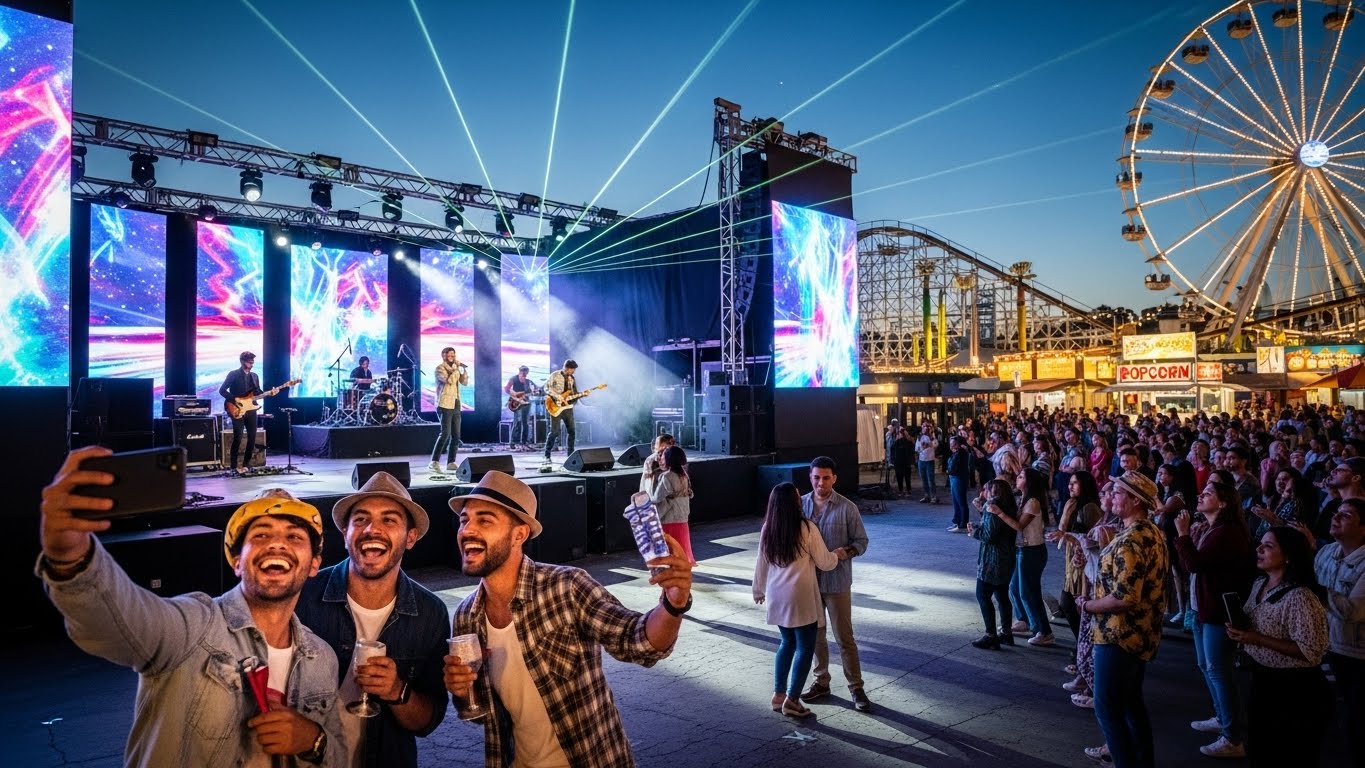The Ever-Changing World of Entertainment

Entertainment has always been a vital part of human life. From the earliest storytelling around campfires to the global film premieres we see today, people have always found ways to amuse themselves and others. The concept of entertainment is broad, covering music, cinema, television, theater, gaming, festivals, sports, digital content, and much more. It is not just about passing time but also about connecting cultures, inspiring creativity, and giving people a break from their daily struggles. In today’s fast-paced world, entertainment has become a multi-trillion-dollar industry, shaping societies and influencing generations in ways more powerful than ever before.
The Historical Roots of Entertainment
Entertainment is not a modern concept. Thousands of years ago, people gathered to share stories, perform dances, and sing songs. Ancient civilizations such as the Greeks and Romans used theaters and gladiatorial arenas to captivate audiences. In medieval times, jesters, minstrels, and plays brought joy to people. Festivals, carnivals, and public performances gave communities opportunities to bond and enjoy life beyond survival.
The printing press revolutionized storytelling by making books widely available, allowing people to experience entertainment in written form. Later, the invention of photography, radio, and television took entertainment to unimaginable levels. Each invention brought new forms of joy and connection to the masses. Today, the internet and smartphones have taken entertainment beyond geographical boundaries, enabling people to access almost any form of content instantly.
The Power of Cinema
Cinema is one of the most influential forms of entertainment. The film industry has shaped culture for over a century. Movies are more than just moving pictures; they are emotional experiences that combine storytelling, visuals, sound, and acting into powerful creations. From silent films to modern blockbusters filled with cutting-edge technology, cinema has continuously evolved.
The golden age of Hollywood gave rise to stars who became global icons. Later, world cinema introduced audiences to the storytelling brilliance of different cultures. Today, cinema is a worldwide language that transcends barriers. A movie produced in one corner of the world can capture hearts globally. Films can educate, inspire, and bring attention to social issues, making them more than just a source of entertainment.
The Magic of Music
Music is a universal language. No matter what culture or background one comes from, music has the ability to move people emotionally. Entertainment would be incomplete without music. From traditional folk songs to modern pop hits, music has always been a reflection of society’s emotions.
Over the decades, the music industry has undergone massive transformations. The rise of vinyl records, cassettes, CDs, and now digital streaming has changed how audiences consume music. Artists today can reach millions instantly through online platforms. Genres like classical, jazz, rock, hip hop, and electronic dance music each offer unique forms of entertainment. Live concerts and music festivals create unforgettable experiences for fans, proving that music is not just for listening but also for uniting people.
Television and the Rise of Home Entertainment
Television brought entertainment into people’s homes like never before. Families gathered around TV sets to watch shows, movies, and live broadcasts. It became an integral part of daily life. From soap operas to news, sitcoms, and reality shows, television has given rise to countless forms of entertainment.
The invention of cable television and later streaming services expanded entertainment choices. Now viewers can watch what they want, when they want. Television has also become a platform for spreading cultural awareness, educational content, and global news. While some argue that television led to sedentary lifestyles, there is no denying its immense impact on shaping modern entertainment culture.
Theater and Live Performances
Even with the growth of digital media, live entertainment like theater, opera, stand-up comedy, and concerts continue to thrive. The magic of experiencing a performance live, surrounded by an audience, creates a sense of community and emotion that screens cannot replicate.
Broadway, West End, and other theater hubs across the globe showcase the artistic brilliance of live performances. Local theaters and small productions also keep this traditional form of entertainment alive. Whether it is Shakespeare’s plays, musical productions, or stand-up comedy shows, live entertainment remains timeless.
Sports as Entertainment
Sports are more than just physical activities; they are a major source of entertainment for billions. From football matches to cricket tournaments, from the Olympics to the World Cup, sports bring together people of all ages and cultures. Fans cheer for their teams, creating unforgettable moments of joy and passion.
Sports celebrities often become entertainment icons themselves. Their influence goes beyond the field, inspiring millions with their stories of discipline, dedication, and resilience. Modern sports are not just games; they are massive industries supported by broadcasting, sponsorships, merchandising, and tourism.
The Gaming Revolution
Video games have become one of the fastest-growing forms of entertainment. What started as simple arcade games has now evolved into a billion-dollar industry. Modern gaming involves complex storylines, lifelike graphics, and interactive multiplayer experiences that rival movies in scale.
Esports has turned gaming into a professional career path. Millions of people watch live-streamed competitions where players battle for championships and large cash prizes. The gaming world also encourages creativity, as players design their own worlds and characters. Virtual reality and augmented reality have taken gaming to a whole new level, immersing players in entirely new worlds.
Festivals and Cultural Entertainment
Festivals have always been a way for communities to celebrate life. Music festivals, film festivals, cultural fairs, and carnivals provide platforms for artists to showcase their talents and for audiences to enjoy diverse forms of entertainment. Events like these are not only about fun but also about preserving traditions, promoting cultural exchange, and creating lifelong memories.
Local celebrations, whether it’s a small-town fair or a global festival like Carnival in Rio, demonstrate the power of entertainment in bringing people together. These gatherings also boost tourism and contribute significantly to local economies.
The Digital Era of Entertainment
The internet has completely transformed the entertainment industry. Social media platforms, streaming services, and digital content creators dominate today’s landscape. People no longer need to wait for scheduled broadcasts or physical copies of music or movies. Instead, they can instantly access content on their smartphones, tablets, or computers.
Content creators on platforms such as video-sharing apps and podcasts have become celebrities in their own right. Independent artists now have opportunities to showcase their work without relying solely on large studios or networks. This democratization of entertainment has opened doors for countless talented individuals.
The Role of Technology
Technology plays a central role in shaping entertainment today. High-definition cameras, computer-generated imagery, and advanced editing tools allow creators to produce stunning content. Virtual reality, artificial intelligence, and immersive technologies are changing the way people consume entertainment.
Smart devices and high-speed internet have made entertainment accessible at any time and place. Viewers can binge-watch shows, listen to music on-demand, or play interactive games across the globe. The boundary between reality and digital entertainment continues to blur, making the future of entertainment even more exciting.
Celebrity Culture and Influence
Celebrities have always been at the center of entertainment. From film stars to sports icons and musicians, they influence trends, fashion, and even political views. Social media has given celebrities direct access to their fans, increasing their influence even further.
The rise of influencers has added a new dimension to celebrity culture. Many individuals who began as regular content creators have gained massive followings, becoming household names. This shift demonstrates how entertainment is evolving from being controlled by large corporations to being driven by individual personalities.
Challenges in the Entertainment Industry
Despite its success, the entertainment industry faces challenges. Piracy has been a long-standing issue, costing billions annually. The oversaturation of content can overwhelm audiences, making it difficult for creators to stand out. Additionally, the industry is often criticized for lack of diversity, unequal opportunities, and exploitation.
Another challenge is balancing entertainment with responsibility. Some content can negatively influence society, especially younger audiences. Therefore, ethical practices, censorship, and parental guidance play important roles in shaping entertainment responsibly.
The Psychological Impact of Entertainment
Entertainment affects people’s minds in many ways. Movies and music can evoke strong emotions, games can stimulate creativity and strategy, and sports can inspire discipline. Entertainment also acts as a stress reliever, offering people a break from routine and mental struggles.
However, excessive consumption can have negative effects, such as addiction, reduced productivity, and social isolation. Maintaining a healthy balance is crucial to ensuring entertainment remains positive.
The Future of Entertainment
The future of entertainment looks limitless. Virtual reality concerts, AI-generated movies, holographic performances, and personalized content recommendations are only the beginning. Audiences will experience more immersive and interactive forms of entertainment.
Sustainability is also becoming important, with industries adopting eco-friendly production methods. Additionally, globalization ensures that entertainment from different parts of the world will reach wider audiences, creating a richer cultural exchange.
Conclusion
Entertainment is not just about fun and distraction. It is about culture, emotions, creativity, and connection. From ancient storytelling to digital streaming, the world of entertainment has evolved drastically and continues to grow. Each form of entertainment, whether music, cinema, sports, or gaming, reflects the diversity of human imagination and the need for joy.
As technology advances and cultures interact more closely, entertainment will keep transforming. What remains unchanged is its purpose: to bring people together, inspire creativity, and make life more enjoyable. The future of entertainment promises even more innovation, ensuring that generations to come will always find new ways to laugh, cry, celebrate, and connect through the timeless power of entertainment.



